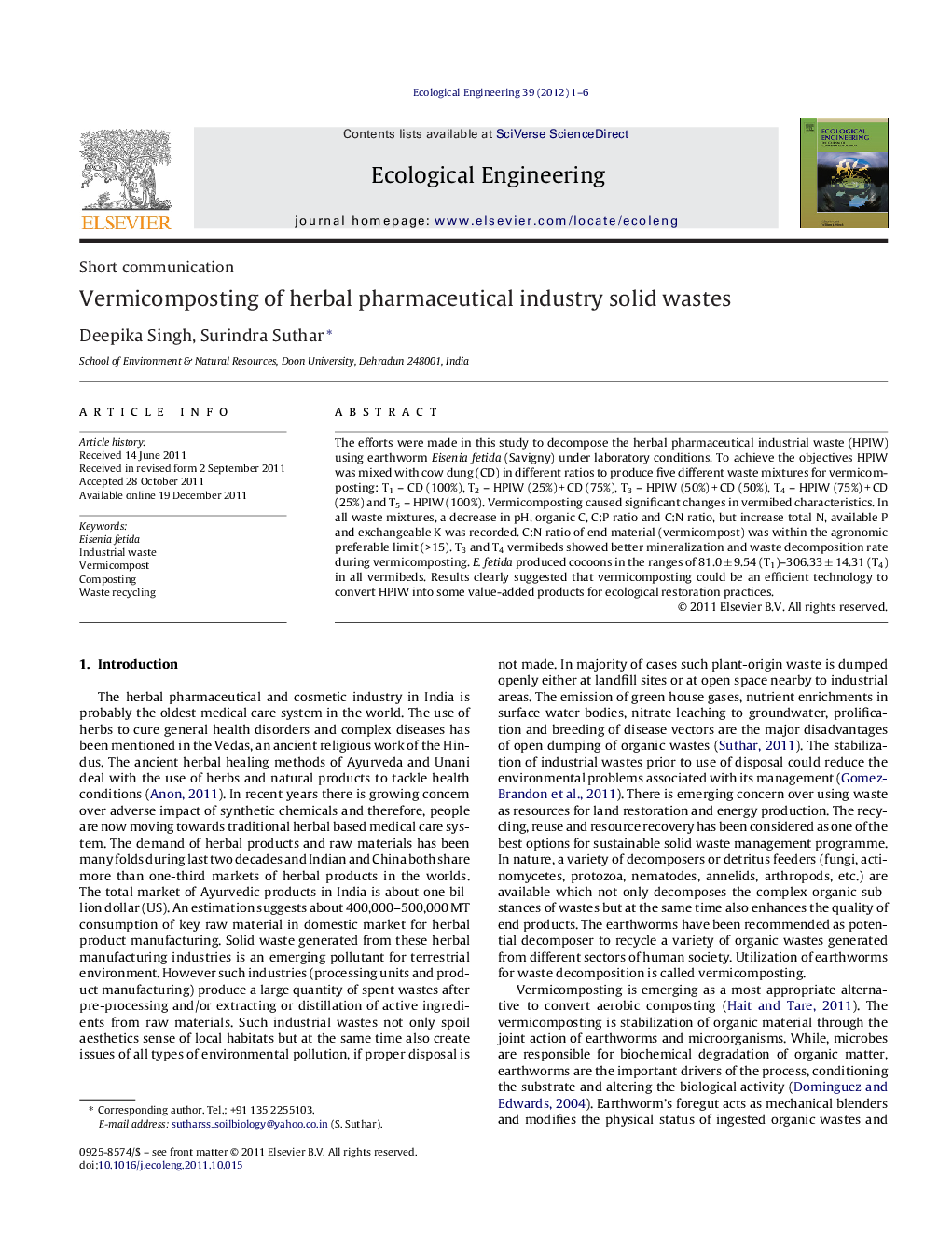| Article ID | Journal | Published Year | Pages | File Type |
|---|---|---|---|---|
| 4390200 | Ecological Engineering | 2012 | 6 Pages |
The efforts were made in this study to decompose the herbal pharmaceutical industrial waste (HPIW) using earthworm Eisenia fetida (Savigny) under laboratory conditions. To achieve the objectives HPIW was mixed with cow dung (CD) in different ratios to produce five different waste mixtures for vermicomposting: T1 – CD (100%), T2 – HPIW (25%) + CD (75%), T3 – HPIW (50%) + CD (50%), T4 – HPIW (75%) + CD (25%) and T5 – HPIW (100%). Vermicomposting caused significant changes in vermibed characteristics. In all waste mixtures, a decrease in pH, organic C, C:P ratio and C:N ratio, but increase total N, available P and exchangeable K was recorded. C:N ratio of end material (vermicompost) was within the agronomic preferable limit (>15). T3 and T4 vermibeds showed better mineralization and waste decomposition rate during vermicomposting. E. fetida produced cocoons in the ranges of 81.0 ± 9.54 (T1)–306.33 ± 14.31 (T4) in all vermibeds. Results clearly suggested that vermicomposting could be an efficient technology to convert HPIW into some value-added products for ecological restoration practices.
